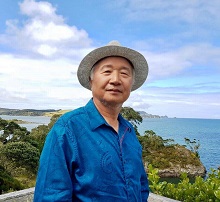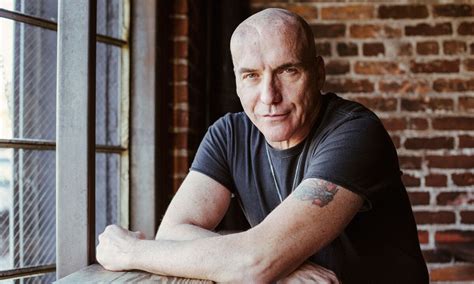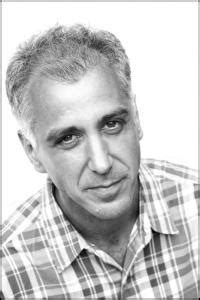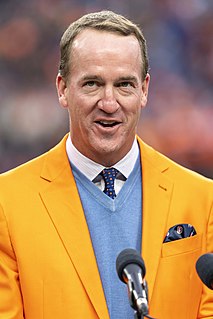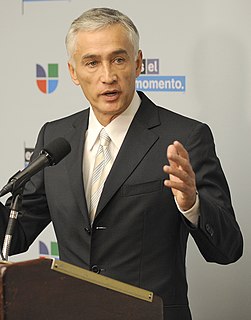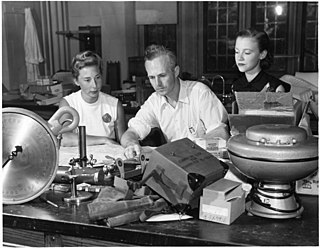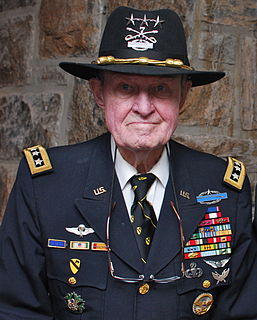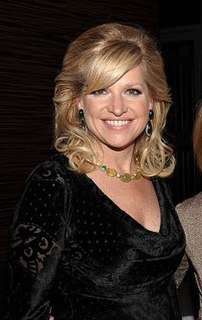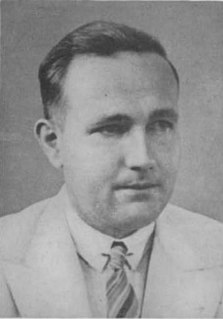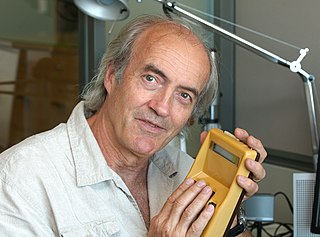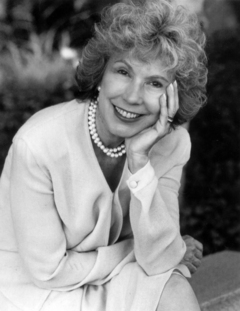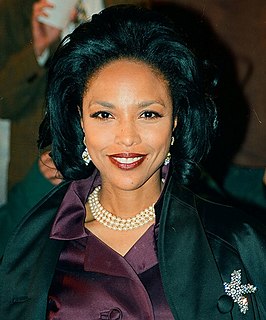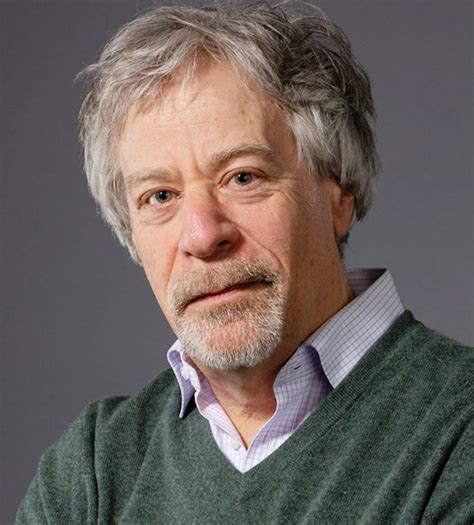Top 1200 Questions And Answers Quotes & Sayings - Page 20
Explore popular Questions And Answers quotes.
Last updated on November 22, 2024.
Bono met his wife in high school," Park says. "So did Jerry Lee Lewis," Eleanor answers. "I’m not kidding," he says. "You should be," she says, "we’re sixteen." "What about Romeo and Juliet?" "Shallow, confused," then dead. "I love you, Park says. "Wherefore art thou," Eleanor answers. "I’m not kidding," he says. "You should be.
Who am I?” “What is the purpose of my life?” These questions arise spontaneously throughout our lives, either unbidden or through conscious intent. Anyone who wishes to live an authentic life must answer these questions, regardless of whether they believe in the existence of the soul or practice a religion. If these queries remain unanswered, life will more than likely remain superficial and empty, in spite of any material abundance. If you wish to make the soul's journey, then I suggest you ask yourself these questions relentlessly and ruthlessly, and listen carefully.
Beware of anyone who calls you bad names merely for asking honest questions. Beware of anyone who insists on reframing your sincere curiosity as a character defect. Beware of anyone who questions your motives while ignoring your facts. When someone calls you bad names merely for asking questions, it suggests they know the answer but are terrified to admit it.
Perhaps we are looking at this from a wrong perspective; this search for the truth, the meaning of life, the reason of God. We all have this mindset that the answers are so complex and so vast that it is almost impossible to comprehend. I think, on the contrary, that the answers are so simple; so simple that it is staring us straight in the face, screaming its lungs out, and yet we fail to notice it. We're looking through a telescope, searching the stars for the answer, when the answer is actually a speck of dirt on the telescope lens.
I always find it kind of more interesting when people ask questions like, "What were you like as a kid?" Or just kind of personal history stuff, like, "What was the lowest point of your life?" Because that would be like, "Huh, well, I'd have to think about that one." And then give an honest answer. I think a lot of people don't want to give honest answers, or they just are in business showbiz mode when they're talking about stuff, so that's probably why a lot of that kind of thing doesn't get asked.
A centerpiece for any kind of progressive social and economic program needs to be full employment with decent wages and working conditions. The reasons are starting with money. Does someone in your family have a job and, if so, how much does it pay? For the overwhelming majority of the world's population, how one answers these two questions determines, more than anything else, what one's living standard will be. But beyond just money, your job is also crucial for establishing your ability to raise a family, and your chances to participate in the life of your community.
A Nicklaus Design golf course is done by the guys in my company that I work with, that have been trained in my vision, and they do what they think I might do. They might come in the office and ask me questions and I'd certainly answer their questions, but I'm not involved in the site visits or anything else.
Dawn Kotzer is the kind of coach who can see beauty and wisdom in circumstances that seem ugly and chaotic. She's kind, genuine and honest, willing and able to see where her clients get stuck and gently help them recover their freedom. Better than a coach who gives you the answers, Dawn will help you find the answers to your life's dilemmas that are already within you.
Whenever I'm giving talks, I always ask people to think of the most obscure questions because I enjoy those the most. I always get the same questions: Why does Pickwick say "plock" and will there be a movie? I like the really obscure questions because there's so much in the books. There are tons and tons of references and I like when people get the little ones and ask me about them. It's good for the audience [and also] they realize there's more there.
Self-confidence is not the same thing as ego. This is not to say that the two don’t (frequently) dance hand in hand down the street, pushing over old ladies in crosswalks and kicking baby kittens. But they are definitely not the same entity. Ego is thinking you have all the answers. Self-confidence is knowing you don’t have the answers, but being pretty sure that you will be able to find them.
Americans have become conditioned to believe the world is a gray place without absolutes; this is because we’re simultaneously cowardly and arrogant. We don’t know the answers, so we assume they must not exist. But they do exist. They are unclear and/or unfathomable, but they’re out there. And—perhaps surprisingly—the only way to find those answers is to study NBA playoff games that happened twenty years ago. For all practical purposes, the voice of Brent Musburger was the pen of Ayn Rand.
It's perfectly clear to me that religion is a myth. It's something we have invented to explain the inexplicable. My religion and the spiritual side of my life come from a sense of connection to the humankind and nature on this planet and in the universe. I am in overwhelming awe of it all: It is so fantastic, so complex, so beyond comprehension. What does it all mean -- if it has any meaning at all? But how can it all exist if it doesn't have some kind of meaning? I think anyone who suggests that they have the answer is motivated by the need to invent answers, because we have no such answers.
[In geology,] As in history, the material in hand remains silent if no questions are asked. The nature of these questions depends on the "school" to which the geologist belongs and on the objectivity of his investigations. Hans Cloos called this way of interrogation "the dialogue with the earth," "das Gesprach mit der Erde."
I roamed the countryside searching for the answers to things I did not understand. Why shells existed on the tops of mountains along with the imprints of coral and plant and seaweed usually found in the sea. Why the thunder lasts a longer time than that which causes it and why immediately on its creation the lightening becomes visible to the eye while thunder requires time to travel. How the various circles of water form around the spot which has been struck by a stone and why a bird sustains itself in the air. These questions and other strange phenomena engaged my thought throughout my life.
Never stop doubting , never stop questioning, never ever assume you have all the answers. Having all the answers kills the question itself, renders it lifeless.....an d you too. Keep looking, keep seeking. Never, ever find it all. Because when you find it all, you deny that there is more. And there is never not more.
If you are hired to shake up the system, do it. No one will believe you're the boss until you do one or more of the following: 1. Add a new division; 2. Lop off a present department; 3. Add new people or reassign and reward present employees; 4. Get rid of deadwood; 5. Change the method of accounting; 6. Change lawyers, accountants, or other outside services; 7. Ask a lot of questions, and demand answers by a certain date; 8. Get in touch with key people in your industry or city and arrange personal meetings; 9. Improve working conditions; 10. Update present benefit plans.
Neo-Darwinian language and conceptual structure itself ensures scientific failure: Major questions posed by zoologists cannot be answered from inside the neo-Darwinian straitjacket. Such questions include, for example, 'How do new structures arise in evolution?' 'Why, given so much environmental change, is stasis so prevalent in evolution as seen in the fossil record?' 'How did one group of organisms or set of macromolecules evolve from another?' The importance of these questions is not at issue; it is just that neo-Darwinians, restricted by their resuppositions, cannot answer them.
I think the appropriate kind of skepticism is this: you've got to be asking questions all the time, you've also got to make sure that you're doing so in the spirit of genuinely wanting to find the answers - and that also means being open. I battle with this: I know I tend to be very skeptical and as a result, I veer towards the dismissive. But being aware of the tendency, I like to challenge my own skepticism and make sure it's not just knee-jerk. You need to be skeptical towards yourself as well. When you're only skeptical outwards you've got an unbalanced skepticism.
Innovation, sending civilians to outer space, mapping the mind, curing cancer - all these things, they're great. Obviously these same companies are also making a lot of money and accumulating a lot of our data at the same time, which seemed like independent things and one is beneficial and one is problematic for us as individuals, but in the rush of the new I think a lot of the philosophical, ethical, moral, and legal questions don't get asked in time. It's not in our nature to pause, sit, meditate, question, debate. We move forward. Technology generally answers itself with more technology.
I do think questions have been raised and questions have to be answered.And there is no way to predict what comes in the door of that White House from day to day that can pose a threat to the United States or one of our friends and allies, and I think this is a big part of the job interview that we are all conducting with the voters here.
I'm so much more gratified by my life now that I have an expertise. I wake up every day thinking about a fairly small set of scientific questions all related to the psychology of achievement, and I'll never get bored of those questions. That's something I couldn't say to you when I was 22 or 25 or probably even 31.
Aristocratic depression has this cosmic dimension to it, where it's asking these big questions about, "Why?" "What is the purpose of all this?" Neuroses of the middle class is the banishment of aristocratic depression, because it's kind of this obsession with quotidian detail that pushes these larger questions away.
If we pray only because we want answers, we will become irritated and angry with God. We receive an answer every time we pray, but it does not always come in the way we expect, and our spiritual irritation shows our refusal to identify ourselves truly with our Lord in prayer. We are not here to prove that God answers prayer, but to be living trophies of God’s grace.
I often reflect on what an extraordinary time (pun intended) it is to be alive here in the beginning of the twenty-first century. It took life billions of years to get to this point. It took humans thousands of years to piece together a meaningful understanding of our cosmos, our planet and ourselves. Think how fortunate we are to know this much. But think also of all that's yet to be discovered. Here's hoping the deep answers to the deep questions-from the nature of consciousness to the origin of life-will be found in not too much more time.
Both of my sisters have been teachers and they used to say you get asked between 300 and 600 questions every day which you have to answer. That's exactly what directing is. And the vast majority of those questions are not very interesting really, but they need somebody to make a decision - a good one or a bad one - and they follow it.



